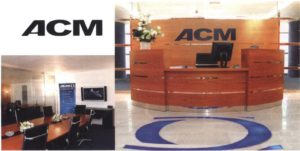Foreign exchange is traditionally an institutionally traded financial instrument says Nick Bang. Until a few years ago, fx trading was largely unavailable to retail traders. The general conception being that fx trading was meant for professional bank traders or at the very least available to sophisticated investors with very sizeable margin accounts. Although it is obvious that participants should have a clear understanding of the risks and dynamics of fx trading, it is quite striking that trading spot fx is in fact substantially simple and conceptually speaking does not require a master’s degree in finance in order to be understood and traded. Since the decline of the equity markets, retail traders have been warming to fx trading as an alternative for aggressive day-trading, however the size of the retail sector of the online fx market is relatively small when compared to the year 2000 standard of online stock trading where it was estimated that 1/3 of all American households possessed an account with a stockbroker.
Of course in terms of volume, foreign exchange turnover is several times larger than that of the global equities markets but it is also evident that what makes up the greater majority of the daily 1.2 trillion dollar foreign exchange volume is not the online retail market but rather institutional bank to bank trading.
Advantages of online dealing
Times are changing, online dealing has brought a myriad of advantages to the retail customer. One may argue that one of the most vital features for day traders, especially short term day traders is the integration of back-office reporting together with the execution interface within the platform. The possibility of making a trade at a click of a button, viewing transactions made, calculating available margin, marking trades to market all second by second and instantly creating and printing equity runs, transaction and P&L statements all on one software session is an extremely alluring offering.
Up to now, one of the major worries for the online trader has been price and execution transparency. Most fx broker-dealers only offer tradable prices by using the notorious RFQ (request for quote) method. At ACM they believe that traders demand more transparent price dissemination in the form of live streaming tradable prices at tight spreads explains Nick Bang. This is becoming more and more available to the retail trader as broker dealers start to lower their spread sizes and focus more on attracting larger volumes. In fact with spread rates having tightened dramatically in the last years, foreign exchange has become an increasingly attractive alternative to traditional stock trading where spreads often represent on average between 0.04% and 0.06% of the value of the stock. In comparison traders can now obtain 3 basis point spreads on the major currency pairs. This equates to approximately between 0.02% and 0.03% on the underlying dollar value.
Spread of online trading
According to Nick bang, currently a small number of firms including ourselves offer the foreign exchange trader / investor simple one click online execution with fully integrated charting/technical analysis modules, real-time position tracking and back-office functions at quasi inter-bank spread rates and fully transparent streaming execution.
The retail trader’s market is starting to become aware of the substantial advantages. Structurally speaking, foreign exchange is a perfect trader’s market. Not only is the fx market characterized by extremely high liquidity, no commissions, very low spreads and competitive margins, but it is also relatively uncorrelated to equities markets.
A powerful tool
Indeed, says Nick Bang, fx is a macro economic instrument and this macro economic nature means that foreign exchange prices are not easily influenced by micro economical factors. Fluctuations in fx are often due to global events, central bank policies and results of well known economic indicators, it is therefore not subject to suffer from economic downturns as is the case in equities markets. In addition to this, due to its’ nature and sheer size, foreign exchange is very well adapted to technical analysis and one can trade it 24 hours a day and night from Sunday to Friday without interruption.
Recent surveys suggest that the demand in the retail market for online foreign exchange trading is so great that firms offering such services are constantly springing up across the globe and the most successful of the already established firms are doubling their volumes traded every year.
Especially interesting for non-bank broker-dealers is the fact that up until now, banks offering online fx trading to their corporate and private banking clients have largely ignored the retail market which leaves that niche wide open for the non-bank participants. Taken into account the very specific know-how needed to successfully enter the retail fx market, it is unlikely that large banks will be able or even be inclined to do so, either way, we at ACM believe that the constant popularization of foreign exchange will mean that the retail sector will experience dramatic growth over the next few years.




